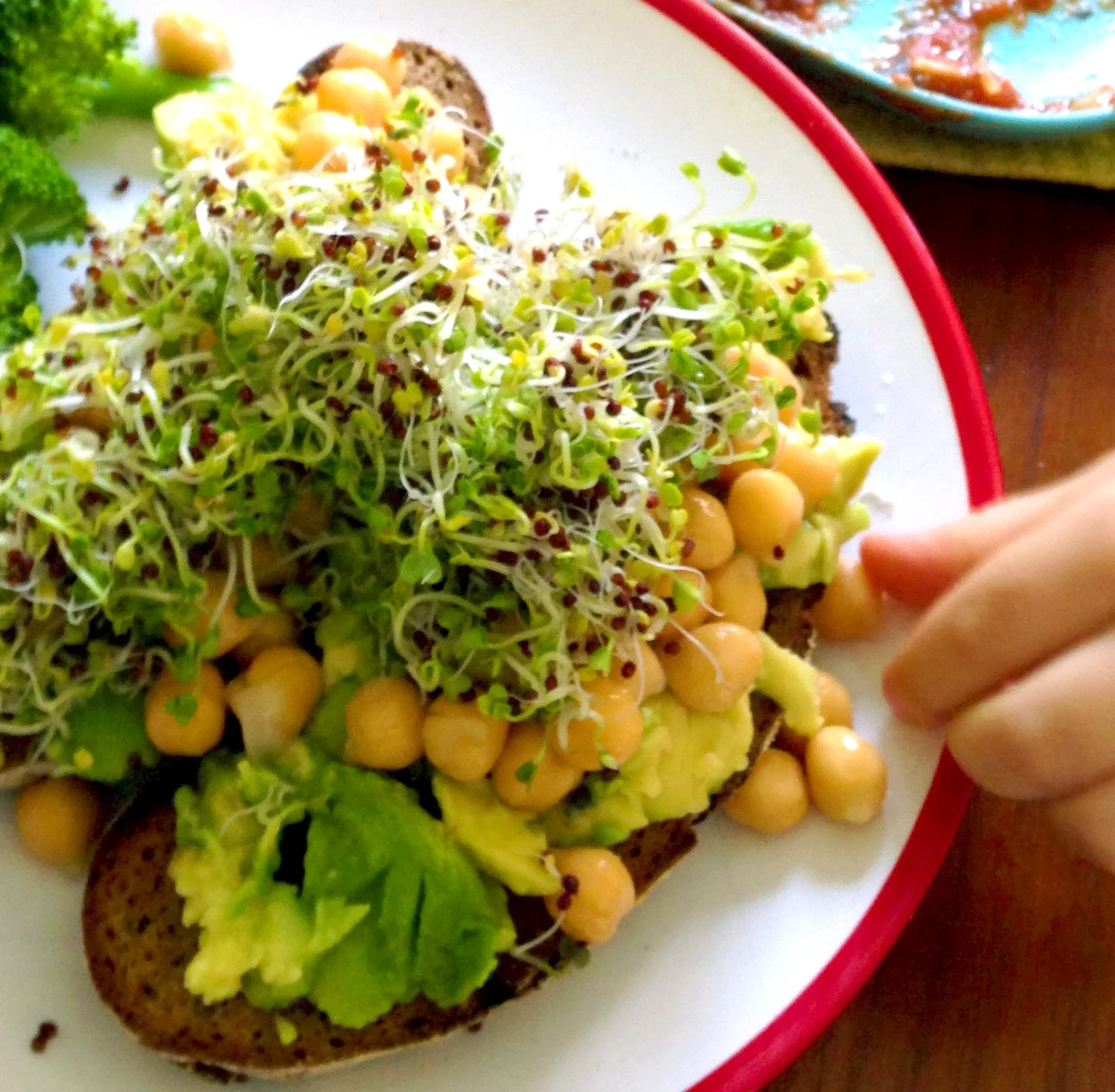On Sprouting
We are very fond of our sprouts and they seem to make it into a variety of dishes that we enjoy. One of the more pleasing aspects of home-grown sprouts is that growing them is really easy, indeed, practically foolproof, something that is a very important feature in this household. Very little care is needed and the time it takes for a seed to turn into an edible sprout can be anywhere from a day to a week depending on the seed and how much sprouting is intended and desired. Some seeds like buckwheat and sunflower we sprout for 24 hours, while legumes such as mung beans and our kitchen staple, broccoli seeds, take about three days.
mix includes mung beans, sunflower seeds, chickpeas and lentils
Broccoli seeds are almost continuously sprouting on our kitchen counter. They are a great prebiotic which is very good for our precious microbiome, as well as containing sulforaphane - a rather mighty antioxidant. The sprouted broccoli seeds have a rocket-like, peppery taste and, in Mrs Greens opinion, are a very appropriate ingredient in tacos and sandwiches. I have made sure to include many tacos and sandwiches in our diet recently, as Mrs Green is pregnant and currently disinclined (read: point blank refusing) to consume broccoli florets.
Method:
- Put 2 tbsp seeds (or whatever it is you fancy sprouting) in sprouting jar (basically, glass jar with enough ventilation through the lid to ensure the seeds don't go mouldy, a cheese cloth secured with an elastic band works just as well). 2 tbsp will not look like much, they will grow to fill the jar.
- Fill the jar with water and let sit for 8 hours or overnight and then drain the water.
- Rinse the seeds thoroughly and drain the jar every 12 hours, and close the lid. Let sit. Repeat twice a day. Wait for the sprouting magic to happen. When the sprouts start emerging, make sure you try to disentangle them to stop them from clumping together too much - the aim is to allow as much air in between the sprouts as possible to allow for good sprouting while avoiding the sprouts getting mouldy in excess moisture.
- Store in the fridge once ready to eat. The sprouts will continue to grow, but at a much slower rate. I store them in a glass container with a sheet of kitchen towel to avoid any excess moisture. Refrigerators dehydrate food, so be sure to close your container tightly. If keeping for a few days, then open the lid and let the sprouts breath once a day for a few minutes.
In the absence of a jar and cheese cloth, or to make a larger batch, simply soak seeds in a large bowl for 8-12 hours and then strain in a large sieve. Place the sieve over a small bowl allowing enough air to circulate and cover with a tea towel and rinse every 12 hours.
Give it a go - and experiment with different kinds of sprouts - there really is great variety in taste, but they are all pretty good, and wonderfully good for you. Sprouts contain within them all of their nutrition, but for an extra kick, place the sprouts outdoors in direct sunlight for a couple of hours for some photosynthesising action to boost the chlorophyll content (your blood will thank you).








